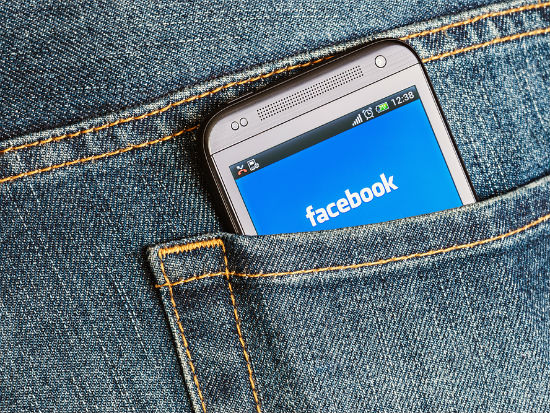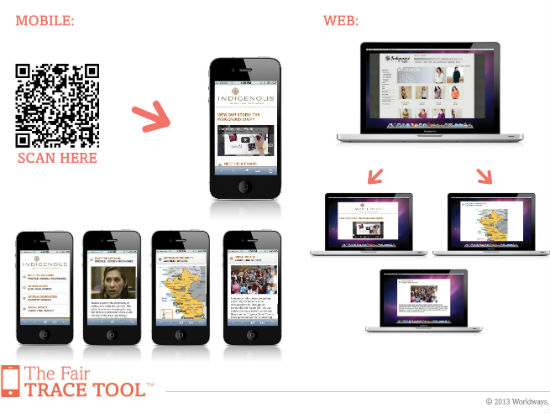 |
| Reviews and Templates for Expression We |
How retailers can win over Millennials with ethical products
Millennials crave consumer goods — but just the socially responsible ones, thank you. They're Aspirationals, and they're the kind of customer sustainable companies want.

GlobeScan CSR and sustainability expert Eric Whan defines aspirational consumers as "materialists who believe they have a responsibility to purchase products that are good for the environment and society." A 2013 global consumer study conducted by BBMG, Globescan and Sustainability found that 2.5 billion Aspirationals exist in the world. All of them love to shop, have a desire for responsible purchasing and trust their brands to be beneficial to society.
40 percent of the Aspirational consumers in this report are Millennials. That means potentially 1 billion people worldwide ages 18 to 29 seek out trustworthy, "do good" brands.
But what happens if this group comes across a company showing unjust behavior? Millennials use social media to share negative information about irresponsible companies. According to a Cone Communications survey, "88 percent of Americans would stop buying a company's products if they learned of the company's irresponsible or deceptive business practices."
Tapping into the aspiring Millennial market appears to be a tricky task. They are looking for brands that showcase sustainable design and morally sound behavior. This generation is also quick to point out untrustworthy companies. How will big retail companies grasp this massive, but dutiful market?
Mark Lee, executive director at SustainAbility, says, "Like never before, brands can engage Aspirationals to pioneer new models and practices that can deliver economic growth while reducing negative impacts on the environment."
Digital content and apps
We all know by now that Millennials are either chatting with friends or aimlessly scrolling through digital content. What isn't clear, however, is exactly how they become attached to certain brands via Facebook or Twitter.
Millennials are infamous for short attention spans. They often find it difficult to manage wordy and long demographic surveys that brands put out. They also want a personal conversation from companies — one that is honest, direct and most important, shareable.
Greg Petro, founder of First Insight, says at Forbes, "if companies want to know what Millennials want, they need to engage in a dialogue with them. It's a conversation."
What platform is this demographic using to tap into conversations with a company?
 Millennials have their phones — and use them — everywhere. (Credit: OlegDoroshin via Shutterstock)
Millennials have their phones — and use them — everywhere. (Credit: OlegDoroshin via Shutterstock)
You've heard it time after time: mobile is the future. According to Janice Reinold of Rosetta Marketing, "the Millennial generation refer to their mobile phone as the centerpiece of their life."
Two of the most popular smartphone activities are accessing the Internet and logging into social networks. But what really stands out about this demographic is its usage of apps. 40 percent of Millennials have more than 20 apps on their device, compared to the average user, who has less than 10.
How will do-good retail companies use this information to their advantage? Is there a mobile app that synthesizes interactive content with a personal conversation via social networks?
Indigenous and the Fair Trace Tool
A recent study by The Intelligence Group showed that 72 percent of Millennials research and shop online before visiting an actual store. On top of this, 50 percent of those surveyed in the study claim that they regularly browse for items they don't plan to buy. This shopping-but-not-buying behavior is known as "fauxsumerism."
These results solidify the fact that retailers need to focus on engaging Millennials online before anywhere else. However, once these companies manage to get this generation in the stores, how will they hold their attention?
Brands can develop tools that allow consumers to interact with articles of clothing in-store. This is exactly what the fashion retailer Indigenous has done. Their Fair Trace Tool allows a smartphone-ready customer to scan QR codes on clothing hangtags. Once scanned, the shopper receives information on the artisans who created the garment and insight into the product's social impact. This digital content appears in text, video and animated map format.
Matt Reynolds, president and co-founder of Indigenous, created this tool to engage his customers and allow them to communicate directly with its "artisan producers at the BOP (base of the pyramid) via cellphone-based voice and text technology." While the tool is still very new, it already has provided the company with data that shows most artisans in the Indigenous supply chain now live above the poverty line.
In the upcoming year or so, Millennials and eco-minded Aspirationals alike should catch wind of this tool and become engaged. Surveyed results show us that they will be in front of those QR codes, phones in hand. The Rosetta report on Millennials shows that 63 percent of women and 53 percent of men use their mobile phones while shopping in-store. The question is, after shopping in-store and engaging in this digital content, will they spread the word of a company's do-good behavior?
In order for mobile apps and content such as the Fair Trace Tool to work correctly, intertwining social media throughout will be necessary to increase sharing and conversations. Millennials want to give feedback on the brands they are engaged with and are often eager to share what they find. 63 percent of Millennials post Facebook comments while shopping. Why not try to get them to post comments about the article of clothing they're currently interacting with?
Better yet, make it even easier and more fun for them. Why not have clothing with QR codes linked directly to Facebook, so that customers can virtually "like" a piece of clothing just by scanning it with their phone?
In Crain's Chicago Business, Andrew Swinand perfectly sums up how companies can grow with Millennials: "Corporations will succeed if they form strong partnerships across the 'do good' eco-system, actively analyze data to see what people care about, create content and experiences in the right voice and seize the unique ability digital has to increase awareness and spur action."
|
|
|
|
Copyright 2011 Energy and Technical Services Ltd. All Rights Reserved. Energyts.com |
